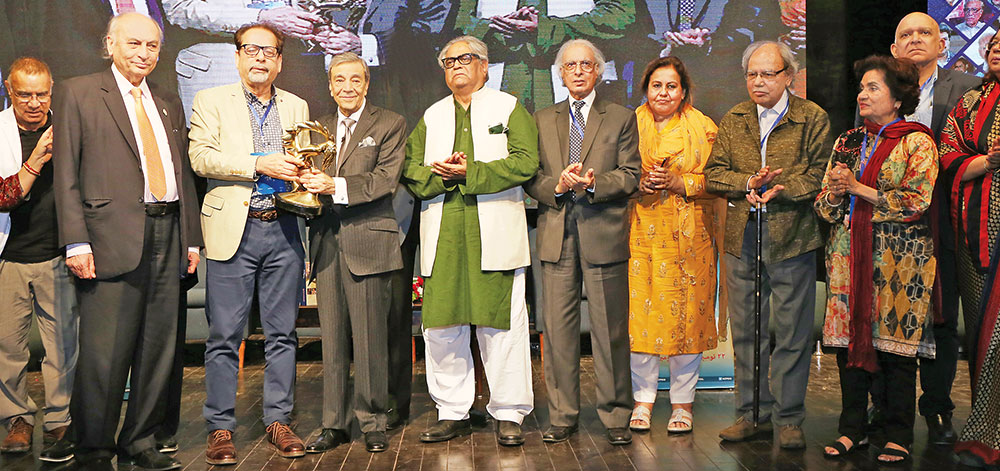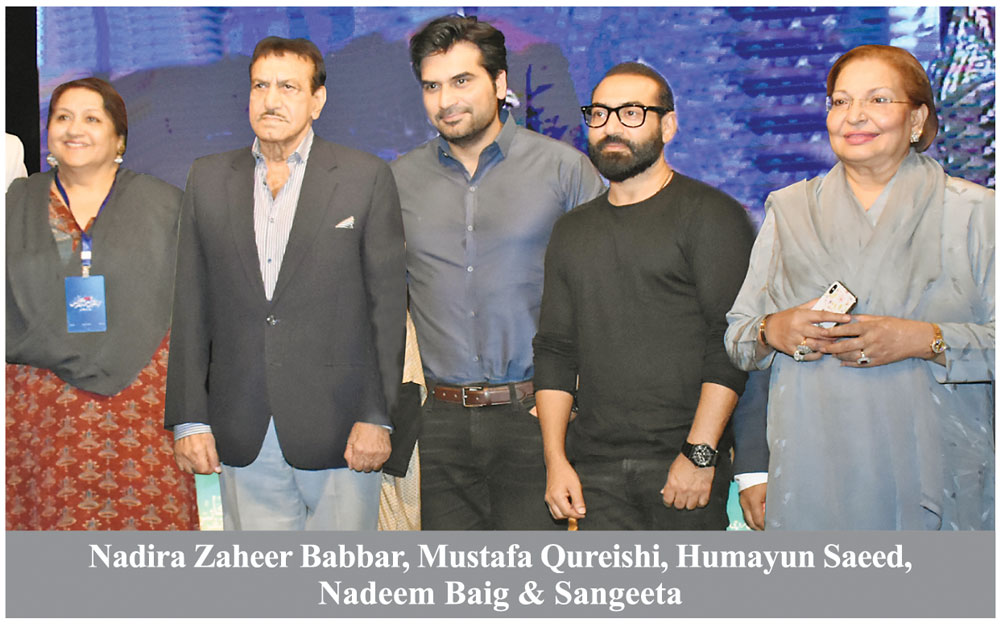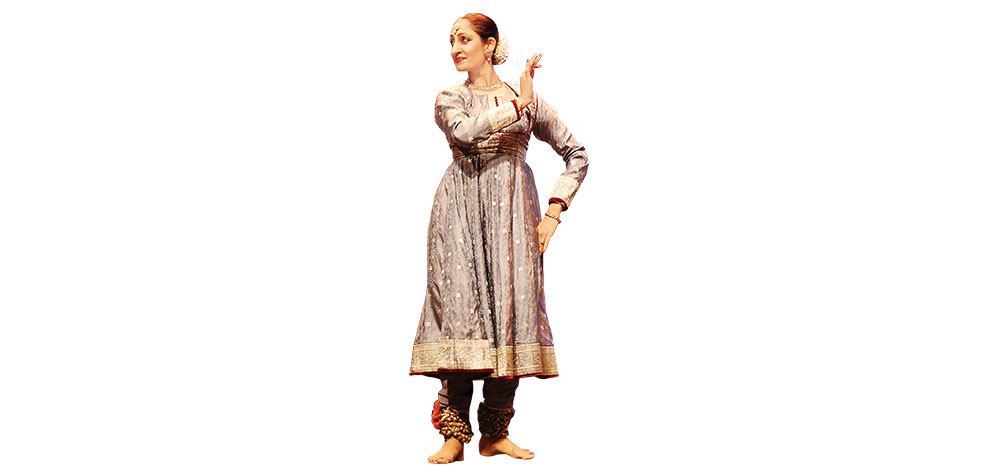Inside Scoop: Anant Ambani and Radhika Merchant’s Grand Pre-wedding Festivities
- 16 Mar - 22 Mar, 2024
Now in its 11th year, International Urdu Conference was introduced to the world as the brainchild of Arts Council of Pakistan, Karachi in 2008. Since then, it has become quite a success and is held every year with clockwork regularity. The number of audience kept growing and its 11th installation witnessed the largest number of people the event has ever hosted, including millennials.

Held in the premises of the Arts Council, the four-day conference [commencing from Nov 22 and ending on Nov 25] was attended by noted Urdu scholars, poets, writers, intellectuals, researchers from around the world, including India, U.S., China, and the UK. The mega event reviewed literature, culture, music, poetry, dance, drama, education, journalism and films. Moreover, it also covered various aspects of Urdu language including its importance in the revival of our forgotten values.
Various sessions shed light on the role of Urdu in keeping our traditions alive and how it has been transitioned to a language that we speak today and the progress of Urdu literature in the 20th century. As it is impossible to jot down the details fully, let us stick to some important activities and sessions that were part of the international moot.
Urdu in Cyberspace
The session was moderated by Owais Tauheed and the panelists included Wajahat Masood, Ayub Khawar and Harris Khalique.
A first of its kind to be discussed at an international forum, the topic had the panelists discuss the importance of the language in a Google-oriented world and the role of cyberspace in the promotion of Urdu.
The panelists agreed to the notion that cyberspace is very necessary in giving voices to the people who cannot be a part of the mainstream media for any reason.
Why people cannot benefit from the internet when it comes to Urdu is the unavailability of rich Urdu Literature online. “I feel the reason contemporary literature isn’t consumed is that it is not widely available on the internet,” said Harris Khalique, a poet, essayist, columnist, and civil society leader.
Urdu Fiction: Past, Present, and the Future
Moderated by Auj Kamal, the session was enlightened in a way that it allowed critics, writers and researchers present their papers on different approaches to the word of fiction.
A very important aspect that this particular session brought to light was the travel documents written by women literary geniuses in the past. “Women were travelling and also writing about their travel experiences but their documents did not come to the limelight. We do find traces through the accounts of Baigmat-e-Bhopal and Atiya Faizi,” said Daniel Joseph, who has been working on the contribution of women towards travelogues.
He also pointed out that some women wrote letters to their relatives in literary languages about their travels, which needed to be documented and preserved.
TV and Theatre in Pakistan
The interesting session was moderated by Ahmed Shah and the rich panel included Nadira Zaheer Babbar, Haseena Moin, Talat Hussain, Noorul Huda Shah, Ayub Khawar, Iqbal Latif and
Sajid Hassan.
The panelists talked at length about the ups and downs of Pakistan theatre and television. To everyone’s amazement, renowned radio and TV artiste Talat Hussain commenced his speech with a very interesting note, saying, “Drama is not a part of our culture, poetry is.”
Writer and director Ayub Khawar was of the view that in today’s world, the rating game has just changed the whole concept of writing meaningful scripts altogether. “Writers like Haseena Appa cannot accept the demands of this ‘rating culture’ and thus not writing much for TV,” he said.
Noorul Huda Shah expressed her views on the significance of drama saying, “Drama is actually the parameter whether our social norms and societal values are on the upside or downtrodden.”

Pakistani Films: Past, Present, and the Future
The celebrated panelists of the session included Humayun Saeed, Nadeem Baig, Munawar Saeed, Mustafa Qureishi, Sangeeta, Sultana Siddiqui and others.
President of Pakistan Film Society, Sultana Siddiqui, expressed the need of a government commission to make sure that Pakistani films get released in other countries. “In order to remove obstacles that filmmakers face while filming in Pakistan, there should be a strong support on government level. This will not only increase tourism in Pakistan, but also slash the production cost of our films thus increasing the revenue,” she said.
Citing examples of Bollywood’s Aan and Lollywood’s Qaatil, [both films celebrated Silver Jubilee], Munawar Saeed said, “It is only the story and screenplay that can save any film, be it in the past or the present. Good content always sells.”
A Mutual Point of Concern
The concluding session was an enlightened one, where the participants shared their experiences and the suggestions on how we can keep the true essence of Urdu language alive and the common proposition was the ‘correct use of Urdu language.’
The participants were of the view that our media does not give importance to the correct use of our national language. At the end of the discussion, Zia Mohyuddin sealed it, saying, “There should be an element of respect when Urdu is spoken on channels.”
All in all, the 11th International Urdu Conference made people realise the importance of Urdu in order to keep our culture and tradition alive. Moreover, it made us fall in love with our national language, all over again!
Since there is always a flip side to every event, Urdu conference also had some loopholes.
• Only an experienced person could gauge the fact that moderation of the film session was handed over to an inexperienced person, who ended up interviewing the panels rather than making them speak about the history and the future of Pakistani films. A [very] dull moment indeed!
• A bitter account should have never been associated with the legendary personality like (Late) Mushtaq Ahmed Yusufi. [Does anyone remember the name of Umer Sharif taken at the podium in a derogatory manner?]
• Jaun Elia was too big a personality. His poetic kalam was read by Yousuf Bashir Qureshi who committed so many errors to the extent of people losing interest. A better choice could have saved the otherwise interesting activity.

Lifetime Achievement Award for Zia Mohyuddin
Pakistan’s legendary actor, producer and broadcaster, Zia Mohyuddin, was awarded with Lifetime Achievement Award by the Arts Council at the concluding ceremony. The award was given in recognition of his achievements and services for Urdu language.
Urdu as official language
President Arts Council, Ahmed Shah, announced that the Council would file a petition in Supreme Court on behalf of writers, scholars and poets, to make Urdu an official language of Pakistan.
Legends Remembered
To make sure that the young generation got to know about legendary names of Urdu fiction and literature, various sessions were made part of the event remembering Jaun Elia, Razia Sajjad Zaheer, Jamiluddin Aali, and Mushtaq Ahmed Yusufi.
The Musical Side
The conference ended on a musical and dance note as U.S. based renowned classical dancer, Farah Yasmin Sheikh, mesmerised the audience with her elegant and sophisticated dance moves. Tina Sani also rendered her vocals on the second day to the kalams of Allama Iqbal and Faiz Ahmed Faiz.
COMMENTS